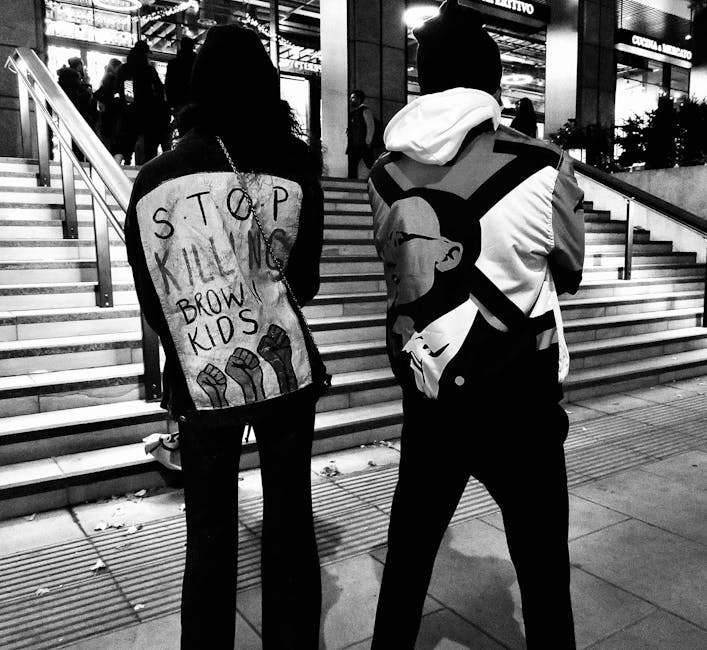Table of Contents
Right, listen. I’ve been slogging away at this content game for more years than I care to admit, seen fads come and go, watched ‘influencers’ sprout up like weeds after a good rain. And most days, when folks jabber on about ‘trailblazers’ or ‘cultural impact,’ they’re usually banging on about someone who sold a million records last week or kicked up a fuss on social media. Pfft. Makes you wonder if anyone ever looks back further than last Tuesday, eh?
But then you get someone like Hazel Scott, and it just… it sticks with you. Proper talent, that woman. A musician, an artist, but more than that, a voice. Not just with her piano, mind. Her actual voice. Spoke her mind, even when it cost her everything. And yeah, I hear people still ask, “Was Hazel Scott really that good?” You bet your bottom dollar she was. Born in Trinidad, a child prodigy, playing Bach and boogie-woogie like they were two sides of the same coin. A real natural. She had that spark, that je ne sais quoi, as the French say. That rare kind of brilliance that just makes you stop and listen, truly listen.
That Unmistakable Flair, That Courageous Stand
See, she wasn’t just a pianist; she was a performer. And I mean, a performer in the truest sense. Could turn a classical piece into something you’d tap your foot to, then flip it and make a jazz standard sing with a whole new feel. She’d play two pianos at once sometimes. Two! Imagine the sheer audacity, the skill required for that. It was her signature, kind of, that dual approach. Like she knew the rules, then twisted ‘em to make ‘em her own. The kind of thing that makes you just shake your head and grin. That’s Hazel Scott for you. A true original, one of a kind, a proper legend if you ask me.
And this wasn’t just about the music. No, not by a long shot. This was a woman who stood up, stood tall, in an era where Black artists, especially women, were supposed to know their place, smile pretty, and play the game. And she just… didn’t. Refused to play for segregated audiences, walked off sets if they tried to tell her what to wear or how to act, especially if it felt like some sort of stereotype. Brave? Aye, mate, beyond brave. It was just who she was.
The Hollywood Hustle and the Stand She Took
She even made it to Hollywood, did a few films, you know, those big musicals from the ‘40s. I Dood It, Broadway Rhythm – big names at the time. She wasn’t just tucked away in a corner either; she got solos, proper screen time. But even there, in the glitz and glamour, she held her ground. There’s a story, a proper telling, about how she refused to do a scene in a maid’s uniform. Said it was degrading. Others would’ve just sucked it up, taken the money, kept their mouths shut. Not Hazel. She had principles, see. More than most, certainly more than a lot of the suits who were pulling the strings back then.
Blacklisted, Yeah, The Whole Shebang
So, what happened to her? Did she ever make a comeback after all that blacklisting? Folks often ask me that, curious about the whole sordid affair. And to be honest, it’s a bit of a grim tale. She testified before the House Un-American activities Committee – HUAC, they called it – in 1950. Denied being a Communist, spoke her truth about the injustices she faced. Said she was just fighting for her dignity, for everyone’s dignity. And what did they do? They ripped her to shreds. Branded her a Communist sympathizer. Sounds familiar, doesn’t it? The powers that be, they just don’t like it when someone with a public voice dares to challenge the status quo. Especially a Black woman in those days. It was a proper kangaroo court, it was. And after that, the gigs dried up. Radio shows, TV appearances, all gone. Just like that. Poof. She packed her bags and went to Paris for a bit, didn’t she? Stayed there for over a decade. Kept playing, kept living, but the big American spotlight? Snuffed out. She did come back later, sure, but the trajectory, the momentum, it was all shattered.
The weight of Being Cancelled – Before It Was a Hashtag
You talk about ‘cancel culture’ today, and yeah, it’s a thing, but what Hazel Scott went through? That was cancellation on a whole other level. Not just losing a few followers or a brand deal. This was literally losing her career, her livelihood, her place in a society that was already rigged against her. For speaking up. For having a conscience. It’s enough to make you spit, honestly. People like her, their stories need telling, don’t they? So we don’t forget what courage truly looks like. So we don’t forget the price some folks paid, just to be themselves, just to demand a bit of fair play.
I mean, how many artists today, really, would risk everything like that? Some might make a grand statement, sure, maybe post something edgy on Instagram. But when the actual bread-and-butter starts getting cut, when the big record labels like Universal Music Group or even the indie ones like Matador Records start backing away, that’s when you see who’s truly got the grit. Most don’t, frankly. They buckle. And who can blame ‘em, eh? It’s a tough gig out there. But Hazel… she was built different.
Her influence Still Echoes, If You Listen Close Enough
So, what’s her legacy today, eh? Is anyone even listening to her records? Absolutely. She’s slowly but surely getting her due. You see it in the way some contemporary jazz pianists approach the keyboard, the blend of styles. And in the conversations about intersectionality, about race and gender and art. She was living that stuff before anyone had a fancy word for it.
Think about it: the whole idea of an artist using their platform for social change? She was doing that, loud and clear, decades before it became a talking point in every single press conference. When you see artists today standing up against injustice, demanding fair treatment, or refusing to compromise their values, a part of that, a big part, stretches back to the likes of Hazel Scott. It really does. Groups like the NAACP or the ACLU are still out there, scrapping for basic fairness. Makes you think. Are there any actual recordings of her performances available for folks like us to hear? Yeah, plenty actually. A good few albums, re-issues, some archival stuff kicking around. If you dig a bit, you’ll find her. Definitely worth the effort.
More Than Just Notes on a Page
It’s not just about her chops on the piano, either. It’s about the sheer audacity of her spirit. This woman performed in fancy nightclubs, played for presidents, starred in movies, and then turned right around and faced down McCarthyism with her head held high. A proper firecracker, she was. Did she have family or children? Yeah, she had a son, Charles Mingus Jr., with her first husband, the preacher Adam Clayton Powell Jr. That’s another whole story, that relationship. But she was a mother too, juggling all that in an unforgiving world. Not many could manage it, let’s be honest.
And the conversation around artistic freedom, creative control, that’s her, isn’t it? She stood her ground against studio bigwigs. You see the way some labels operate today, like Verve Records or Blue Note Records, they put out these re-issues, try to connect with a legacy, but do they really grasp what it took back then? Not just the notes, but the guts. Sometimes I wonder if these big streaming platforms, like Spotify or Apple Music, with all their algorithms and playlists, truly give enough light to artists like Hazel Scott, who don’t fit neatly into a box. It’s all about the next big thing, innit? And the past, well, it’s often just a footnote. Sad, that.
A Voice That Just Won’t Be Silenced
So, what about her impact on future generations of musicians? A lot of jazz pianists, especially women, look up to her. And I think it goes beyond the music itself. It’s the strength she showed, the refusal to be diminished or defined by anyone else’s narrow views. That kind of spirit, that kind of resilience, well, that’s contagious, isn’t it? It gives others permission to be bold, to speak their truth, to use their art not just for entertainment, but as a weapon for change. Not that everything has to be a fight, mind. Sometimes a good tune is just a good tune. But sometimes, it’s much, much more.
I think about the folks running places now, like artist management firms. Would someone like Maverick Management or even smaller, more niche agencies, understand her? Would they see the long game, the legacy, or just the immediate marketability? Hazel Scott wasn’t about quick bucks or easy wins. She was about principle. A hard word for a lot of people to swallow these days, I reckon.
More Than Just an Icon, She Was Real
She wasn’t some perfect saint, mind. Nobody is. She was a human being, with her own struggles, her own flaws. But her stand against segregation, her artistic integrity, her sheer talent – that’s the bit that truly matters. That’s what’ll last. It makes you think about what we value today, doesn’t it? Is it the quick viral hit, or the deep, enduring impact? I reckon it’s often the former, which is a crying shame. But history, she’s a funny old bird. She has a way of sorting things out in the end. And the story of Hazel Scott? Well, that one’s definitely getting dusted off and put right where it belongs: front and centre. It’s a proper lesson, that is. A proper lesson. And if you don’t know her, you should. Seriously. Take it from an old fella who’s seen a few things come and go. She was the real deal.












